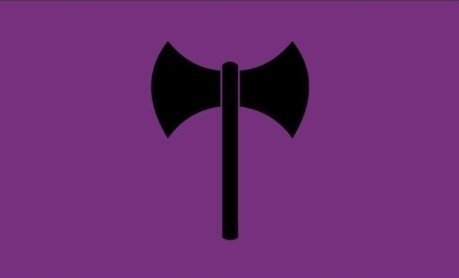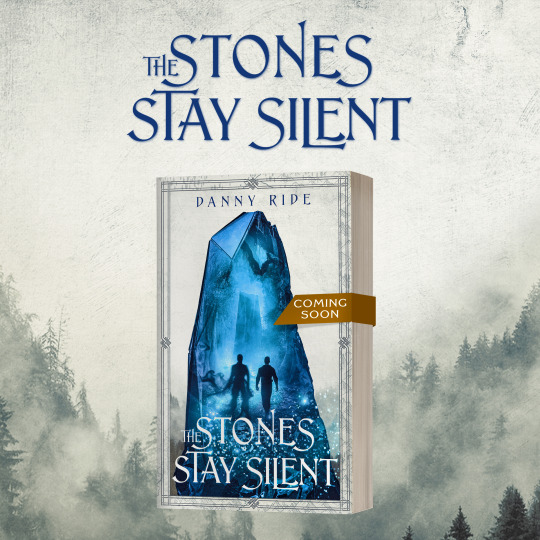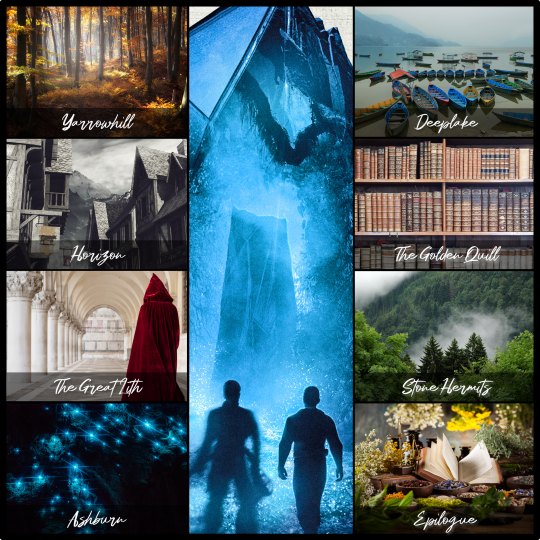#Romanian book reviews
Text
Slovakia is the Dwight from the Office of Central Europe where Slovenia isn't, Romania is slightly different:
Its history is shaped by two very distinct cultural motifs to outsiders, the murderous impalement-happy Wallachian prince Vlad Tepes Dracula, and by the Communist dictator Ceausescu. This book notes that a great deal of Romanian insecurities start from the fact that their historical origins are an enigma, that like Croatia they are self-consciously aware of a frontier aspect to their society. And like Croatia (and the United States for that matter) the frontier ethos never augurs well for the society so dedicated to such self-perception.
As such it lays out a fairly balanced and even harsh at points where it's deserved history of Romania, condemning an obsession with the past that overshadows the future, bigotry against Jewish people and the Romani, and refusing to take nationalist or communist self-serving bullshit seriously. It is, equally, one of the few genuinely good histories of this genre I've had the pleasure to read where all the others invariably start the weasel-words and the 'well it was bad for these other people but we was good when we did it's.
9/10.
5 notes
·
View notes
Text
To exist, and yet not be “fully alive”: Scarred Hearts by Max Blecher
To exist, and yet not be “fully alive”: Scarred Hearts by Max Blecher #RomanianLit
In his short life, one defined by and confined by illness, Romanian author Max Blecher (1909 – 1938) published two novels, a collection of poetry, and a number of prose pieces and translations. A journal he kept was published posthumously. He also corresponded with some the most important writers and thinkers of his day. For a young man who spent the last decade of his twenty-eight years in…

View On WordPress
#book review#books#Henry Howard#literature#Max Blecher#Old Street Publishing#Romanian#Scarred Hearts#translation
2 notes
·
View notes
Text
New review of my book!
Immensely grateful to Erica Goss for this tremendous review of my book, In Those Years, No One Slept, published last year by Broadstone Books. I hope you give it a read. Erica offers an excellent newsletter with great advice on poetry craft. Subscribe if you can.


#poetry#poets on tumblr#poetry book#book review#new books#romaniangirl#romanian poet#romanian american writer#history#immigrant stories
0 notes
Text
Ruta Sepetys Does it Again in I Must Betray You
I am writing this months after having read I Must Betray You which only proves that Ruta Sepetys’s work is so profound and rich and haunting that I am able to speak of it with such clarity after so long.
I Must Betray You is an absolute gem of a book. It is a living and breathing tome of palpable description, gripping internal and external conflicts, jaw-dropping betrayals and plot twists that…

View On WordPress
#book review#contemporary historical fiction#favourite author#Historical Fiction#historical fiction book recommendation#historical fiction book recs#I Must Betray You#Romanian Revolution 1989#ruta sepetys#ya fiction
0 notes
Text
13 Days of Halloween: "Down, In Their World" Short Story Review by Flavius Ardelean (A R Deleanu)
youtube
#bookworm#book reviews#literature#read read read#horror#halloween#13 days of halloween#romania#romanian literature#flavius ardelean#a r deleanu#Youtube
0 notes
Text
youtube
Scrisă într-un stil epistolar, Această dulce povară, tinerețea de Cella Serghi este o poveste de dragoste inspirată din realitate, autoarea introducând multe evenimente din propria biografie. Cita este o copilă din flori, nedorită de nimeni, căsătorită mai mult din datorie decât din alte considerente, cu un bărbat care nu o iubește. Ion Berezeni este un doctor renumit, publicist și persoană publică, cunoscând-o pe Cita din întâmplare. Deși ambii sunt căsătoriți, între cei doi se înfiripă imediat un sentiment mai puternic decât orice, dar universul este împotriva lor, lăsându-i să se întâlnească doar prin intermediul scrisorilor.
#aceasta dulce povara tineretea#editura hoffman#elena scrie#elenas bookshelf#cella serghi#romanian lit#booktube#bootuber#book review#Youtube
0 notes
Video
youtube
Another fun one. I did not expect this
#the heir's lair#review#book review#youtube#youtube link#youtube video#youtube review#the children of the ecosystem#dystopia#queer books#queer lit#queer#eco#eco-dystopia#romania#romanian literature#sci-fi#queer dystopia#ecosystem#social media
0 notes
Text

How on earth did these goats get there?
*****
In reality the goats are lying on their sides on rocky ground, looking up at a crane-mounted camera. The photograph was taken some years ago, part of a series reconstructing Central European folk customs and traditions which have fallen from favour or are now prohibited.
This old-fashioned rural blood-sport was originally practiced in parts of Anatolia, Turkey, where the game was called keçi fırlatmak, and also in the Carpathian Alps of Romania, possibly imported during the Ottoman conquest. The name there was aruncarea caprei.
*****
The goats would have been coated in a strong adhesive traditionally distilled from pine resin.(represented pictorially here by darker patches of dye on the flanks) and were then thrown upwards towards a cliff or rock-face with makeshift catapults, often a primitive form of counterweight trebuchet assembled from wooden beams and weighted with rocks.
The game ended when the glue dried and lost adhesion, and the goats fell to their deaths. They were then cooked and eaten, their meat being valued like that of Spanish fighting bulls.
The meat of the last goat to fall (başarılı keçi or cea mai durabilă capră) was prized as a special delicacy and selected cuts from the legs of this particular “winner” goat were often smoked and dried into a kind of jerky.
*****
In his “Grandes Histoires Vraies d'un Voyageur le 1er Avril” (pub. Mensonges & Faussetés, Paris, 1871) French folk-historian, anthropologist and retired cavalry general Gilles-Etienne Gérârd wrote about witnessing a festival near Sighișoara, Transylvania, in 1868.
There he claims to have seen catapults improvised from jeunes arbres, très élastiques et souples - “very springy and flexible young trees” - which were drawn back with ropes and then released.
Bets were placed before the throw, and marks given afterwards, according to what way up the goats adhered and for how long. The reconstruction, with both goats upright, facing outward and still in place, shows what would have been a potential high score.
The practice has been officially banned in both countries since the late 1940s, but supposedly still occurred in more isolated areas up to the end of the 20th century. Wooden beams from which the catapults were constructed could easily be disguised as barn-rafters etc., and of course flexible trees were, and are, just trees.
*****
Gérârd’s book incorrectly calls the goat jerky “pastrami”, to which he gives the meaning "meat of preservation".
While pastrami may be a printing error for the Turkish word bastırma or the Romanian pastramă, both meaning “preserved meat”, at least one reviewer claims that Gérârd misunderstood his guide-translator, who would have been working from rural dialect to formal Romanian to scholarly French.
Since this jerky was considered a good-luck food for shepherds, mountaineers, steeplejacks and others whose work involved a risk of falling, Gérârd's assumption seems a reasonable one.
However, several critical comments on that review have dismissed its conclusion, claiming "no translator could be so clumsy", but in its defence, other comments point out confusion between slang usage in the same language.
One cites American and British English, noting that even before differences in spelling (tire / tyre, kerb / curb etc.) "guns" can mean biceps or firearms, "flat" can mean a deflated wheel or a place to live, "ass" can mean buttocks or donkey and adds, with undisguised relish, some of the more embarrassing examples.
This comment concludes that since the errors "usually make sense in context", Gérârd's misapprehension is entitled to the same respect.
*****
The good-luck aspect of the meat apparently extended to work which involved "falling safely", since its last known use was believed to be in ration packs issued to the 1. Hava İndirme Tugayı (1st Airborne Brigade) of the Turkish Army, immediately before the invasion of Cyprus in July 1974.
Nothing more recent has been officially recorded, because the presence of cameras near military bases or possible - and of course illegal - contests is strongly (sometimes forcefully) discouraged, and the sport’s very existence is increasingly dismissed as an urban or more correctly rural legend.
The official line taken by both Anatolian and Carpathian authorities is that it was only ever a joke played on tourists, similar to the Australian “Drop-bear”, the Scottish “Wild Haggis” and the North American “Jackalope”.
They dismiss the evidence of Gérârd’s personal observation as “a wild fable to encourage sales of his book”, “a city-dweller’s misinterpretation of country practices”, or even “the deliberate deception of a gullible foreigner by humorous peasants”.
And as for those paratroop ration packs, Turkish involvement in Cyprus is still such a delicate subject that the standard response remains “no comment”.
81 notes
·
View notes
Text
♀️latscho diwes djuviale♀️
💞 I made this blog to highlight the specific struggles Romani women face based on our sex, our race and our class
💞 I'm anti-gender, anti-sex trade, anti-religion, anti-capitalist
💞 I support women's and LGB rights. My feminism is female only!
💞 I'm a half-sinti, half-white working class homosexual woman living in Western Europe
BEFORE YOU BLOCK ME, READ THIS: x

FAQ, BOOKS AND RESOURCES BELOW
General / Frequently asked questions
-> Difference between Roma and Romanian (x)
-> Difference between Roma and Sinti (x)
-> My profile picture is from De la source à la mer (1984), by Sinti-Manouche filmmaker and writer Pisla Helmstetter
-> My banner is from The Gypsies are Found Near Heaven (1975), by Emil Loteanu
Posts on the racialized misogyny targeting Romani women
-> general masterpost (x)
-> posts on Romani women being sex trafficked into prostitution in Europe (x) (x)
-> posts on the forced sterilization of Romani women in Europe (x) (x) (x) (x)
-> post on healthcare discrimination (x)
-> incest, sexual and domestic violence targeting Eastern European Romani women (x) (x)
-> Roma, religion and misogyny (x)
-> On "Gypsy witches" (x)
Inspiring Romani women you should know about
-> autobiographies by Romani women (x)
-> Sandra Jayat, French-Romani painter and poet (x)
-> Katarina Taikon, Swedish-Romani writer and antiracist activist (x) (x)
-> Elena Gorolova, Czech-Romani women's rights advocate (x)
-> Jelena Savić, Serbian-Romani feminist, poet and essayist (x)
-> Tela-Tchaï, French-Romani actress (x)
-> Amoun Sleem, Palestinian-Domari antiracist activist and feminist (x)
-> Philomena Franz, German-Romani Holocaust survivor and writer (x)
-> Vera Kurtić, Serbian-Romani lesbian feminist (x)
-> Kiba Lumberg, Finnish-Romani and butch lesbian artist (x)
-> Zilli Schmidt, German-Romani Holocaust survivor (x)
-> "15 Bad ass Romani ladies you should know about" (x)
-> Romani herstory, an "ever-growing digital library that celebrates women of Romani descent from the past and present, unsung heroines & trailblazers who refuse(d) to conform to stereotypes"
Romani feminist writings
-> Intersections of Gender, Ethnicity, and Class: History and Future of the Romani Women’s Movement, by Jelena Jovanović, Angéla Kóczé, and Lídia Balogh (x)
-> Gender, Ethnicity and Class: Romani Women's Political Activism and Social Struggles, Angéla Kóczé (x)
-> Lessons from Roma Feminism in Europe: Digital Storytelling Projects with Roma Women Activists from Romania, Spain and Sweden, Jasmine Ljungberg (x)
-> Romani women’s identities real and imagined: Media discourse analysis of “I’m a European Roma Woman” campaign, Jelena Jovanović (x)
-> Džuvljarke: Roma Lesbian Existence, Vera Kurtić (x)
-> Re-envisioning Social Justice from the Ground Up: Including the Experiences of Romani Women, Alexandra Oprea (x)
-> Angéla Kóczé on the hijacking of the Romani feminist and antiracist movement by neoliberal groups (x) (x)
-> Mihaela Drăgan on the racialization of Romani women (x)
-> quotes from Romani feminist books (x)
Learn about the Romani genocide
-> general post (x)
The Genocide and Persecution of Roma and Sinti. Bibliography and Historiographical Review (x)
Roma Resistance During the Holocaust and in its Aftermath, Angéla Kóczé, Anna Lujza Szász (eds.) (x)
O Porrajmos: the Romani Holocaust, Ian Hancock (x)
Porrajmos: The Romani and the Holocaust, Ian Hancock (x)
Responses to the Porrajmos (the Romani Holocaust), Ian Hancock (x)
Barvalipe Roma Online University (playlist of lectures about many different aspects of Romani history, politics and culture) (x)
Romani slavery in Romania
Brief overview (x)
Alternatives to the labrys flag


(first design by @/sapphos-darling)
363 notes
·
View notes
Note
You seem knowledgeable on the USSR, can you do a debunking of this post, or link me a source which debunks it?
https://www.tumblr.com/sanson-ki-mala-pe/746822120828502016/soviet-antisemitism-a-hundred-years-of-recycling
i don;t have time to address every claim made here, but it jumps out to me immediately that the source they're referencing, "More than a Century of Antisemitism: How Successive Occupants of the Kremlin Have Used Antisemitism to Spread Disinformation and Propaganda" is quite literally published by the US Department of State, and that this document in turn uses as one of it's major sources the Romanian defector Ion Mihai Pacepa, a controversial figure who's various claims have been frequently called into doubt even by those sympathetic to his cause.
for example, in this book review by the national catholic register [link], the author of the review, who is plainly sympathetic to Pacepa's anti-communist goals, nonetheless casts doubt on many of the claims he makes:
In the article “Moscow’s Assault on the Vatican,” published in 2007, Pacepa claimed he convinced legendary Vatican diplomat Msgr. Agostino Casaroli — later cardinal and secretary of state under Pope John Paul II — to let three Romanian agents, posing as priests, peruse the papal archives.
Under scrutiny, Pacepa’s story began to unravel, with doubts expressed by historians and Vatican experts.
Then the reason Pacepa claimed to have credibility with the Vatican collapsed: He said he had engineered a “spy trade” in 1959, exchanging jailed Romanian Archbishop Augustin Pacha for two spies caught in West Germany. But Archbishop Ioan Robu of Bucharest showed photos of the bishop’s 1954 crypt, explaining the heroic man was already dead when Pacepa claimed to have liberated him.
[...]
Vatican diplomats Cardinals Giovanni Cheli and Luigi Poggi were involved in negotiations with Romania and the Soviet bloc. Cardinal Cheli called Pacepa’s allegations “untruthful scenarios,” while Cardinal Poggi declared them “the product of a troubled mind and soul.”
Archbishop Robu, who was consecrated by Cardinal Casaroli, emphatically calls the Pacepa account false: “We would know, it would be in our memories, if Romanian spies gained access to the Vatican Archives. It didn’t happen.”
[...]
In Disinformation, Pacepa credits KGB operations with everything from plotting the assassination of U.S. President John F. Kennedy to provoking the rise of Islamic extremism. In each scenario, he portrays himself as a witness to history — when his true rank and job description would never explain access to these events or decisions.
another similarly anti-communist catholic source is the catholic review, the official publication of the archdioces of baltimore. [link] they write:
Mr. Rychlak, the author of two books on Pope Pius and World War II, said he thinks Mr. Pacepa’s account needs to be verified in the Soviet archives.
“Pacepa’s timing is questionable. Why hasn’t this story been revealed until now? I hope the United States government will declassify any information it has on this important matter, to spare the time a Freedom of Information Act request takes,” said Mr. Rychlak.
John Cornwell, the British author of a 1999 book, “Hitler’s Pope: The Secret History of Pius XII,” told CNS he has never heard the claims described by Mr. Pacepa and considers them “most unlikely.”
“As a supporter of NATO and the Western Alliance, it’s not inconceivable the pope could have been targeted (by the KGB). But I haven’t seen any credible documents indicating anyone doctored material,” said Mr. Cornwell, whose book was criticized by church officials for its negative portrayal of Pope Pius.
Former colleagues of Mr. Pacepa, 79, expressed doubts about his story.
“Between 1960 and 1962, when he pretends he ran Vatican spies, he was in Bucharest, assigned as a deputy in the techno-scientific section of Securitate (the Romanian secret police), where he stayed until he defected in 1978,” said a former high-ranking Securitate officer who would not allow his name to be used.
“In the chain of command he would not have had direct communication with the KGB generals. If he did, that would make him a Soviet agent, not a Romanian one,” the source added.
“In 1959, Pacepa was in Germany under diplomatic cover. He was a captain in Cologne with a degree in chemistry and belonged to the techno-scientific section. Again, the KGB generals wouldn’t have taken him into consideration,” said the source, who believes Mr. Pacepa is trying to build a “mysterious aura” for himself in his later years.
“Why did he wait 29 years (since his defection) to reveal this? If it’s true, it would have made so much sense to put it on the table in 1981, after the Soviet-Bulgarian plot to assassinate Pope John Paul II,” the source said.
A former Romanian diplomat of the communist era, who has advised the U.S. government, expressed “deep doubts” about the account.
“Pacepa is not a serious source,” said the former diplomat. “His book ‘Red Horizons’ (1988) is about one-third fiction. He takes some real facts, and then invents.
“I’m afraid he is just trying to bring attention to his persona. He invokes the Vatican because the Romanian Securitate has been exhausted and is a marginal issue,” he added.
“Pacepa does not document. Given the gravity of the affirmations he makes, in order to be credible, he must unveil the source, himself, or otherwise it is fiction,” said the retired diplomat.
given Ion Mihai Pacepa's overall track record, i would certainly like to see some other source verifying the various claims that the "More Than A Century Of Antisemitism" cites from him, most especially the claim that the USSR distributed copies of the Protocols in arabic in the middle east, a claim I cannot find any other source for.
Edit: also i should note that one of the major thrusts of the "More Than A Century Of Antisemitism" document is to smear all criticism of Azov in Ukraine as somehow antisemitic, which is just ludicrous. regardless of how you feel about the war in Ukraine, there are legitimate criticisms to be made of Azov Battalion and the role they have played there.
30 notes
·
View notes
Text
The “Readers also enjoyed” feature on Goodreads (which GR says was created 10 years ago to “use people’s reviews, ratings and other data to make great personalised recommendations”) is still so bad when it comes to non-anglo books, it’s kind of funny at this point. I don’t understand how it continues being so useless when there are lots of people logging and rating books in other languages on this platform every day? It’s not breathtakingly accurate for anglo books either but the “See similar books” link will suggest at least some books that are somewhat similar in some way, whereas for non-anglo books after all this time it’s still like “I see you enjoyed this short French nonfiction book about literary salons in 18th-century Paris—I’m sure you’ll love this modern epic novel written in Romanian about a man who cheats on his wife with a ghost, since you're into the Foreign Books genre.”
#i know it's an american platform and it's normal for english language features to work better but#i thought the algorithm would have to improve eventually with all the non-anglo data added every day and it just stubbornly doesn't#the other day based on a contemporary literary fiction book in french it suggested an old-timey scifi book in english and#the vocal score to an italian opera in italian.#if it works based on the books the users read or rate highly shouldn't it be the other way around and show you#books in random languages in relation to english books since there are more people reading in english + their native language#than in italian + some other non-english language for ex? i don't understand how it works
434 notes
·
View notes
Text

today is hubby’s bday! few people know this but he was my first supporter when I created this blog - in fact, the whole thing was his idea! at the time I had a starker/MCU blog and did a couple reclists. when I fell back into the drarry pit he was like “what if you did the same thing for drarry but with single recs like those book review YT channels” I was very reluctant because big fandoms can be overwhelming and I didn’t feel creative or qualified to rec HP. not only I wasn’t up to date in terms of reading, I’d always been a lurker and didn’t know anyone around here; starker was a smaller, safe community without an insane to-read list or any other type of pressure. when covid hit I decided to take his advice and created the blog to distract myself at lockdown, that’s how the sit-pee brand kick off 😂 the rest is history. I’m feeling nostalgic and wanted to celebrate him somehow; since he’s a fan of fantasy books and magical creatures - dragons in particular - I decided to do a 🐉 reclist! I’ve been wanting to rec some Charlie rarepair fics so this is the perfect excuse. enjoy!
Drarry:
Sanctuary by @stargazing-enby (2021, G, 2k)
Harry finds warmth in peculiar ways on a freezing Romanian winter day.
Keeping the Dragon Keeper by @xx-thedarklord-xx (2018, T, 4k)
Charlie still wasn’t sure what it was about dragons that drew him in. Perhaps it was their intense nature or the way they protected their kind. Maybe it was the way Harry cared for Draco, or the way the latter always kept an eye on his mate. Either way, he would do anything to protect them.
Tiny Dragons & Where to Find Them by @tasteofshapes (2020, T, 5k)
Draco finds the tiny dragon sleeping on the staircase leading up to the astronomy tower.
Dragon Wings and Flying Things by rillalicious (2018, NR, 6k)
The Annual Broom Race of Sweden is headed through the Swedish Short-Snout dragon reservation. Charlie has arranged for Harry to bring Teddy. In the midst of all the excitement, Harry finds out that one of the most famous Dragonologists in recent history is someone very familiar.
Fighting fire with fire by azyxy (2021, E, 12k)
As Deputy Director of the Ministry’s Fire Brigade, Draco Malfoy is an expert firefighter. But after things get out of hand in what should have been a routine operation and Harry Potter arrives to help, Draco finds himself getting hot and bothered for totally unprofessional reasons.
Fata Morgana by @icmezzo (2014, M, 16k)
“It’s only a mirage,” they tell Draco (and Pepper). “You must be imagining,” they dismiss him in turn. But Draco Malfoy is certain that something is out there, and, come hell or Harry Potter, he’ll find out. He will.
Next Time I Fall by sassy_cissa (2019, E, 21k)
When Harry visits Charlie in Romania – he ends up finding more than he bargained for.
Here Be Dragons by birdsofshore (2016, E, 22k)
Harry doesn’t want to waste his time investigating illegal dragonhide trading, whether it involves a fetish club in Knockturn Alley or visiting a remote island in Wales. Why the bloody hell does Malfoy always have to be up to something?
Under Giant Mountains by @wolfpants (2022, E, 33k)
Harry doesn't know where he's going. Everyone else has their life paths figured out; he doesn't even know where his map is. Who'd have thought Draco Malfoy bathing in a Norwegian forest would be the guidepost Harry needed?
Blood and Fire by @lqtraintracks (2017, E, 45k)
Harry has spent the last twelve years in Romania, not returning to England as often as he knows he should. It's complicated. But when Ginny asks him to be her best man and help her plan her wedding, he can't say no. Having a reckoning with his choices, with himself, won't be easy. To say nothing of seeing Draco again.
Survival of the Species by @romaine2424 (2011, E, 46k)
Draco approaches Harry on the 9 ¾ platform, after their sons have boarded the Hogwarts Express, and invites him over for tea. The discussion they have leads them on an adventure that neither could have expected. There be dragons! HPDH compliant but before any other canon info had been released.
An Offering of Dragons by Lomonaaeren (2015, M, 46k)
Harry decides that he really needs to take a holiday. He hits on the idea of touring the respective dragon sanctuaries of the world, and invites Draco, who he’s casually dating, to come with him.
Kept in Cages by @sweet-s0rr0w, art by @ihopeyoubothstaysafefromharm (2022, E, 76k)
Deep in the heart of the Ministry lies the Beast Division: a hidden room where ancient beasts roam, and winged creatures soar, and grumpy giant ferrets eat all your biscuits unless you keep them well hidden. Draco Malfoy would know – he’s been working there for five years now, after all.
Such Great Heights by aideomai (2015, E, 93k)
Draco Malfoy, wide-eyed and pale and in a decidedly ragged shirt, was crouched next to the pile of whatever the dragon had been eating. Harry threw himself to a halt and yelled, “Merlin, how many times do I have to save your life?”
Chasing Dragons by @the-sinking-ship (2021, E, 98k)
Draco can think of only one way to outclass his pleat-front-khaki-wearing politician ex, and that’s by making headlines with an obvious upgrade. And who better to upstage the cheating bastard than the Saviour of the World, Harry Potter himself?
He Comes Like a Thunderstorm by @korlaena (2021, E, 140k)
Draco is doing his best to balance the life he wants to live and the life he’s forced to live. He’s nearing the tail-end of a long, post-war probation when Harry Potter crashes back into his life with all the grace of a charging Erumpent, breaking through his carefully constructed rules and routine.
Rarepairs:
love on high by tryslora (2015, E, 1.3k) - Charlie/Draco
Charlie loves to take Draco up on dragon back and fuck him high above the ground.
Use My Last Breath (to say I love you) by Cassiara (2020, E, 6k) - Charlie/Harry
Harry loves the way Charlie's hands feel around his neck. He's not sure how to feel about the tiny dragon or the long-distance relationship.
On the Same Side by rillalicious (2018, M, 7.5k) - Charlie/Teddy
Teddy is heading to Romania to protest a proposed anti-dragon law. He finds an interesting ally there.
Where the kind things are by epsilonargus (2018, T, 8k) - Charlie/Teddy
Charlie didn't think there was any other way to live, until he was forced to take Teddy Lupin in as a dragon trainer. Teddy didn't think he could ever be forgiven, until Charlie Weasley told him there was no shame in being kind.
Putting Charlie Right by mindabbles (2018, E, 9k) - Charlie/Teddy
Teddy is good at his job. He can take the most disorganised, poorly maintained record keeping system and have it pass any audit within weeks. Teddy is very, very good at his job, and he’d be able to prove that fact if Charlie wasn’t bent on distracting him.
In the Land of Dragons by megyal (2008, M, 10k) - Charlie/Draco
Charlie's job has changed from dragon-keeper to dragon-hunter in the apocalyptic aftermath of the war. DH-based, but not EWE-compliant; I'm sure I can say it veers into AU territory. Influenced by the movie Reign of Fire.
Exhaling Invisible Fire by gonergone (2014, G, 12k) - Charlie/Harry
As the Wizarding World tries to get itself back in order, Harry needs takes the opportunity for a rest.
Charlie Weasley's Fuck Autobiography by @lqtraintracks (2014, E, 14k) - Charlie/Teddy/Harry/Draco, minor Charlie/Bill
Charlie doesn't think that this is his Fuck Autobiography. But it so is.
Dreaming Skies by @sweet-s0rr0w and @tackytigerfic (2021, E, 20k) - Draco/Ron
Draco's life is going nowhere, so when Charlie Weasley offers him a job out on his reserve, Draco doesn't think twice before booking a Portkey. After all, it's not as if he has many other options. But when he arrives in Romania, he realises that nothing is quite what he expected...
Licurici by @lou-isfake (2021, E, 133k) - Harry/Charlie/Draco
Charlie wanted Harry, but he’d never planned on having him. He’d never planned on Draco Malfoy, either. He hadn’t planned on anything but living out his days in Romania, with his friends and his dragons and his safe, peaceful distance. Apparently, it wasn’t a very popular plan.
161 notes
·
View notes
Note
I just recently found out that And I darken exists and is an immense piece of cultural appropriation. Like
All the good reviews: English speakers
Most of the bad reviews: romanians pointing out how they butchered our national history, a great hero, how Islamophobic it is and how no one cares bcs it's a " white" country
I haven't read the book, but the summary makes it obvious the author didn't bother with a Google search, not to mention a sensitivity reader.
But it's honestly a little bit hilarious how
English tumblr : stanning the devil crate
Romanian Tumblr: untranslatable memes roasting the fuck out of the story
--
I know nothing about this... book?
134 notes
·
View notes
Note
What books about Sisi do you recommend? 😄 Which ones are the best in your opinion?
Hello! I'm sorry for answering this so awfully late. I already recommended some of these books always before, but I tried to give some new recomendations this time!
BIOGRAPHIES:
Elizabeth, empress of Austria by Egon Conte Corti. The first biography of the empress based on primary sources; this work is to this day a point of reference for any historian who wants to write about Sisi. The book, first published in 1934, is however outdated and slightly biased (the children of archduchess Marie Valerie were the ones who opened up the family archives for Corti after all). Translations available in English, Spanish, French, Italian, Hungarian, Slovak, Polish and Dutch.
The Reluctant Empress, by Brigitte Hamann. The most well sourced biography since Corti's. Hamann's book departed from the fairy tale princess image that had been established since the 50s and depicted Elisabeth as a complicated and far from perfect woman. The book, first published in 1982, is however slightly outdated and biased (Hamann just hated Elisabeth lol). There are translations available in English, Spanish, Hungarian, French, Italian, Czech, Polish and Romanian.
Sisis Weg: Vom Mädchen zur Frau by Martina Winkelhofer. I made a full review of this book last month but in short: a refreshing study at Elisabeth's childhood, teenhood and first years as empress that rely on newly available primary sources. I wouldn't recommend this book as your first approach to Elisabeth though, since Winkelhofer assumes the reader is already familiar with the "Sisi myth" and doesn't tend to give much historical context outside the necessary, which may be confusing if you aren't familiar with 19th century European history in general. Translations available in Italian, Polish and Czech.
PUBLISHED DIARIES, LETTERS AND MEMOIRS:
Das Tagebuch der Lieblingstochter von Kaiserin Elisabeth edited by Martha and Horst Schad. Archduchess Marie Valerie's diary from 1878 until 1899. I own a copy of this book and I've been slowly reading it, maybe one day I'll finally finish it. There are translations available in Italian, Hungarian and Czech.
Briefe Kaiser Franz Josephs an Kaiserin Elisabeth, 1859-1898 edited by Georg Nostitz-Rieneck. A compilation of the emperor's letters to his wife. Available (as far as I know) only in German.
Lieber Rudolf: Briefe von Kaiser Franz Joseph und Elisabeth an ihren Sohn edited by Friedrich Weissensteiner. A compilation of letters that the imperial couple wrote to their son Crown Prince Rudolf between 1860 and 1878. Available (as far as I know) only in German.
Das Tagebuch der Gräfin Marie Festetics: Kaiserin Elisabeths intimste Freundin edited by Gudula Walterskirchen and Beatrix Meyer. The diary of Elisabeth's lady-in-waiting Marie Festetics. Available in German and Hungarian.
Kaiserin Elisabeth ganz privat: Briefe an ihre intimste Vertraute Ida Ferency edited by Beatrix Meyer. All the surviving correspondance between Elisabeth and her reader and confident Ida Ferenczy. Available (as far as I know) only in German.
Unsere liebe Sisi: Die Wahrheit über Erzherzogin Sophie und Kaiserin Elisabeth edited by Gabriele Praschl-Bichler. A compilation of letters by archduchess Sophie regarding her daughter-in-law and also the life of the imperial family in general. Also available in Czech.
Aus den letzten Jahren der Kaiserin Elisabeth by Countess Irma Sztáray. The memoirs of Elisabeth's last lady-in-waiting, from the time she entered service in 1894 until the empress' assassination in 1898. Currently in the public domain in German so it can be read for free here; available also in Hungarian, French, Italian and Czech.
OTHERS:
Das Poetische Tagebuch edited by Brigitte Hamann. Elisabeth's edgy poetry. Historians drag her writing style through the mud while simultaneously using her poems as if they were her private diary. Waiting for a translation in English or Spanish to read them, available also in Hungarian and Italian.
Elisabeth: Stages in a life edited by Brigitte Hamann and Elisabeth Hassmann. A nice short book about the different places Elisabeth lived and traveled to, full with pictures. Available in German and English.
My Past by Countess Marie Larisch. The memoirs of Elisabeth's controversial niece. I don't actually recommend them for learning about the empress since they are very unreliable, hence why I din't put this book in the previous block. I do recommend reading them to double check which heavily accepted facts about Elisabeth and her family originated from here, since many historians repeat her claims uncritically, sometimes without even citing her as the source. In the public domain, you can read it for free in German here and in English here. Also available in Hungarian, French, Italian and Czech.
Tagebuchblätter by Constantin Christomanos. The diary of Elisabeth's Greek teacher from 1891 to 1894. Just as with Larisch' memoirs, Christomanos' book is a mix of fiction and reality, so you should take it with a grain of salt. You can read it for free in German here and in French here. Also available in Greek, Hungarian, Italian and Spanish.
I hope that I could help you!
#btw the only ones i've read from the published letters etc. block is valerie's diary and unsere liebe sisi (which i also haven't finished)#but i wanted to bring to as much primary documents published as possible#empress elisabeth of austria#asks#book recs
27 notes
·
View notes
Photo



The Stones Stay Silent launches on April 14th!
Here is the official blurb:
When a deadly plague sweeps the land, the priests of the Parents accuse those deemed to have incurred the gods' wrath. Leiander, unmarried and with interests unbecoming to the woman people consider him to be, flees for his life.
With the Night Demon Kevv'ach by his side and his deepest wish undiminished, he journeys to the Great Lith, said to still channel the magic of the Parents. He will beseech the gods to remake his body in the image of the Father, so the world sees him as his true self: Leiander.
And here’s what you can expect:
- A character-driven medieval-ish fantasy story;
- Transgender aroace main character seeking to live his life and maybe bake;
- Cinnamon roll Night Demon bestie with partial amnesia (and a sweet tooth);
- Steadfast friends turned found family (and occasionally, a pair of mules);
- Absent gods who left behind mysterious blue monoliths;
- Strict gender roles dictating what jobs people have, what colors they wear, and what tattoos they get + a couple of fanatics hell-bent on enforcing said rules;
- Extensive travel through a plague ravaged realm;
- A conspicuous lack of magic; or swords; or sorcery; or monsters;
- Even more giant statues;
- A bunch of recipes to try for yourself, from Romanian, Austrian and... whatever cuisine baked goat cheese in walnut crust comes from;
- Named chapters! Pronunciation guide! Maps for each part! Extensive content warnings! Handy reference chart for timekeeping! Cameo appearance by my cat!
- Eventually, I promise, a happy end.
You can already preorder the ebook on Amazon and have it synch to your device on Friday, when the paperback will also be available there. If you’d rather support your local indie bookshop, go for it! You can ask them to order a book for you once published, by providing them the following details:
Title: The Stones Stay Silent
Author: Danny Ride
ISBN: 9783982494906
----
If it’s not up your alley, you don’t want or can’t afford to buy the book, you can still support - it would mean so much!
- share this post
- let your friends know
- ask your local library to order the book for you! (you and anyone else can read it for free then!)
- suggest it as reading for book clubs
- add the book to your list on goodreads
- mark it as to read on the story graph
- upvote it on reedsy discovery - there is a detailed review there from an independent reviewer, and you can also read the first chapter for free!
----
images:
1) promo material of the book featuring the book cover
2) moodboard of the seven parts and the epilogue
3) promo material showing a sample of the book interior
#The Stones Stay Silent#Danny Ride#lgbt fantasy#lgbtq fantasy#lgbtq representation#trans books#ace book#aro books#aroace books#aroace mc#trans mc
62 notes
·
View notes
Link
Arhivele unor vânători de demoni în Micul Paris este o serie amuzantă, plină de răsturnări de situație, dezvoltare treptată a personajelor, descriere și reprezentare a societății românești de altă dată, urmărind, totodată, lupta binelui împotriva răului, care are loc într-o manieră atractivă.
#rade glont de minte sparta#mk lynn#petale scrise#arhivele unor vanatori de demoni in micul paris#cazul inimii furate#elena scrie#book review#autor roman#romanian lit
0 notes